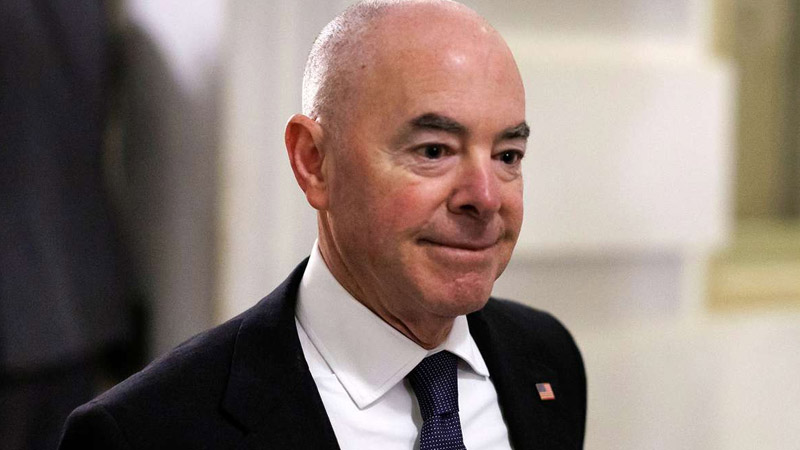The House of Representatives took a historic step by voting to impeach Homeland Security Secretary Alejandro Mayorkas, marking him as the first Cabinet secretary to be impeached in nearly 150 years. This landmark decision was reported by CNN the following day, underscoring the gravity and rarity of such an action within the context of American governance.
The move to impeach Mayorkas came on the heels of an unexpected setback faced by House Republicans in their earlier attempt to bring charges against the Secretary. That initial effort was marred by internal divisions within the Republican Party and the absence of some members during the vote, leading to its failure. Despite this, the GOP rallied to bring forth another impeachment vote, driven by a desire to spotlight what they view as the Biden administration’s failures in managing immigration and border security effectively.
The impeachment initiative is largely seen as a response to the growing demands from the Republican base for greater accountability from President Joe Biden’s administration, particularly concerning its immigration and border security strategies. House Republicans have leveled serious accusations against Mayorkas, alleging that he has committed high crimes and misdemeanors in his role, particularly about the management of the southern border.
However, the impeachment has sparked a debate among constitutional scholars, some of whom argue that the evidence presented falls short of the high threshold needed to substantiate claims of high crimes and misdemeanors.
The historical significance of this impeachment is highlighted by the fact that only one Cabinet official has been impeached in the history of the United States: Secretary of War William Belknap in 1876. Mayorkas’s impeachment thus places him in a rare and notable category, emphasizing the unprecedented nature of the House’s decision.
This action by the House raises critical questions about the dynamics of government operation and the delicate balance of power between the executive and legislative branches. It represents a forceful statement by the House of Representatives on the importance of holding high-ranking officials accountable for their actions, setting a precedent for governance and oversight.
The next phase of this process involves the Senate, where a trial will be conducted to determine whether Mayorkas should be removed from office. Although the impeachment by the House is significant, the ultimate decision rests with the Senate, which will weigh the evidence and arguments presented during the trial.
The nation is now intently focused on this unfolding event, recognizing its potential to influence public opinion on the Biden administration’s immigration policies and to establish new norms for the accountability of Cabinet officials. The impeachment has sparked vigorous debate across the political spectrum, with differing opinions on the necessity and justification of such a measure.
As the Senate prepares for the trial, the implications of this historic impeachment extend beyond Mayorkas’s fate. It will affect the broader discourse on immigration and national security, the interplay between the executive and legislative branches, and the political landscape for years to come. As this significant chapter in American political history unfolds, the country awaits the outcome with bated breath, understanding that the repercussions of this impeachment will resonate far beyond the halls of Congress.



